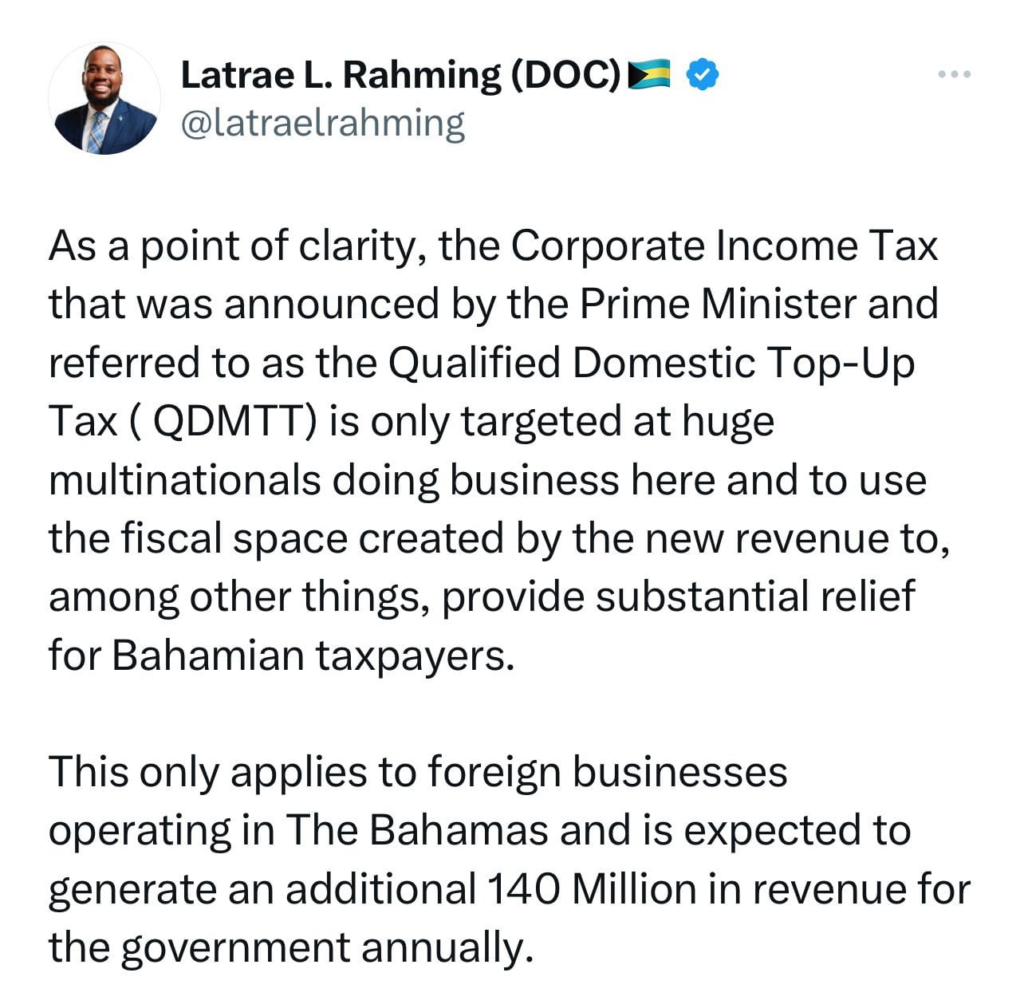
STATEMENT: Today, the Prime Minister and Minister of Finance Hon. Philip Edward Davis KC, MP announced the introduction of the Qualified Domestic Minimum Top-Up Tax (QDMTT), a significant measure under the OECD’s Pillar Two tax framework aimed at ensuring multinational enterprises (MNEs) operating within The Bahamas pay their fair share of taxes. This initiative specifically targets MNEs with annual turnovers exceeding 750 million Euros, aligning with our international obligations and efforts to combat tax base erosion and profit shifting.
The implementation of the QDMTT represents a landmark step towards enhancing fiscal fairness and strength within our nation. By imposing a 15 per cent corporate income tax on these large multinational entities, The Bahamas is poised to unlock a new and substantial revenue stream, initially estimated to exceed $140 million annually. This move not only ensures that very large companies contribute appropriately to the national economy but also creates fiscal space that will be utilized to provide significant relief to Bahamian taxpayers.
The announcement comes after extensive consultation and preparation, including the release of a consultative Green Paper on Corporate Income Tax Strategies for The Bahamas and numerous discussions with stakeholders. The government’s dedication to transparency and collaboration was further underscored by a workshop facilitated by the International Monetary Fund to refine policy design elements for the legislative drafting process.
With the draft legislation expected by the end of May 2024, the government is committed to a robust public consultation process over the summer, leading to the finalization and submission of the document to Parliament post-summer recess. This approach underscores our commitment to not only ensuring that multinational corporations contribute fairly but also to protecting and promoting the interests of Bahamian businesses and the broader economy.
The Davis Administration believe that currently, addressing only Pillar 2 multinational enterprises is the proper approach. Any consideration of a wider business income tax would only happen if it is a more equitable approach for Bahamian businesses, and would only be done after proper consultation, with considerable lead time in order for Bahamian businesses to properly prepare.
The introduction of the QDMTT marks a pivotal moment in The Bahamas’ fiscal policy landscape. By targeting only the largest multinational enterprises, we aim to foster an environment of fairness and equity in taxation, ensuring that these entities contribute meaningfully to the jurisdictions in which they operate. This policy move is a clear indication of our commitment to fiscal responsibility, international compliance, and the well-being of our citizens and residents.








